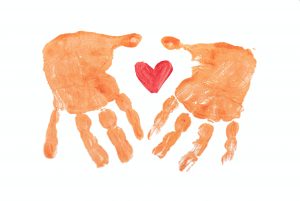As I sit in my therapist’s chair, I have often wondered what does my client think I am thinking. A lot of the time, I don’t have to wonder and clients will say to me things like “you must hear this all the time,” or “your other clients probably have bigger problems than me,” or “I am probably your most crazy client,” or most heartbreakingly, “you must be so bored with me.” I marvel at these comments, because it is so far away from what I am actually thinking and feeling when I am with them. I am aware that the comments are projections, and signify how they expect to be treated, but at the same time there is a sadness in me that they are not aware of what I and many other therapists are likely thinking and feeling. So here are some insights in to what we are probably thinking.
1. Your therapist cares about you

We think about you outside of the therapy room. When we are having lunch, taking a walk, and even silently to ourselves at the dinner table. We wonder how you are doing at various moments in the day, and we think about ways in which we can help you further. A wonderful teacher of mine once said “what was harmed in a relationship must be healed in a relationship” and I like to think of this as also meaning, “what was damaged in love must be healed in love.” Love is a strange word in the therapeutic relationship, but I think fully appropriate. As I am invited into the lives of my clients, and fortunate enough to be trusted to hear their hurt, a deep sense of care, appreciation and love develops for them. This is a healthy love, and a necessary love to do the work we do. It is not a love that requests anything in return, it’s just a human sitting with another human, who has been allowed into another person’s life and feels connected. Within this space, healing can occur, as pain can be wit(h)nessed in a loving environment. This is often the very thing that was missing in my client’s upbringing in the first place. The healing agent is in the relationship, perhaps Maya Angelou captured it best when she wrote: “I’ve learned that people will forget what you said, people will forget what you did, but people will never forget how you made them feel.”
2. Your therapist definitely does not think you are crazy
If you suffer as a result of trauma, neglect, abuse and/or loss (however big or small), an individual or group is not crazy, they are just human. Humans’ have the capacity for emotion, this is our beauty. Our emotions are our compass. For example, if I love, I want to connect, if I feel angry, I want to assert myself, and if I feel guilty, I want to repair. The fact we have this internal guidance comes at a cost, when our feelings are hurt, we can be overwhelmed and we tend to do whatever we can to spare ourselves from emotional injury. It is those things we do to spare us, that often cause us symptoms which then exacerbate our suffering, and lead to mental health issues. This is not crazy, this is being human. Unfortunately, society tends to medicalise misery, and suggest it is a “brain problem” or say you are “ill.” This does no-one any favours, least of all the client. There is no compassion, or empathy in that discourse, it just promotes otherness and absolves responsibility. The person who experiences or witnesses suffering, and it has no impact — that is the person I am most concerned about.
3. Your therapist feels with you
As I sit there watching my client sob, or be angry. I am also feeling sad or have rage stir inside me on their behalf. For example, I was sitting with a client the other day, and they were describing something horrific their mother had done to them. In that moment, they really allowed themselves to grieve for the mother they never had, and I sat there with tears welling up in my eyes. When a client sees this there is a danger they may feel they need to look after me, but I make it clear that my sadness is appropriate, as is theirs, and I find more often than not it models a healthy expression of emotion and furthermore reflects back to them a validation of their experience. Whether therapist’s demonstrate their emotions outward or not, I have no doubt they feel with you. They feel your sadness, they feel the joy at your successes and they also feel righteous anger for you. Your therapist is likely more alongside you in your journey to healing than you know.
4. Your therapist admires you

Another great teacher of mine once said “in therapy there are two messes, and it is not always clear which one is the bigger mess.” Being human is messy, and therapists are definitely not immune to this. There are many moments a day I am sitting across from a person and they spark admiration from me. Admiration regarding their strength, their ability to love, their achievements, their courage and their deep knowledge about themselves and their processes. Mostly, though it is their ability to love. Many clients won’t realise how inspiring their capacity for love is, or even see themselves as loving people. But the truth is, often the reason they suffer is because of a “gift of love.” For example, if we lose, we mourn because we love, after all what is grief if it is not a celebration of love. If we feel angry towards someone we care about, we often repress it, and turn it on ourselves via self-doubt or blame. Whilst this is not ideal, it can be seen as a gift of love — as we care so much about the other person, we spare them and attack ourselves instead. When we are abused or neglected, somehow we end up “bad,” and suffering with low-self esteem or worth, because the alternative of feeling righteous anger towards the person we care about is too painful, so we make ourselves the issue. These are all acts of love, and demonstrate an incredible capacity to love. In my view, most mental health issues are an unknowing unconscious gift of love, because each of us at some point have learned that we have to cover up within ourselves that which could not be loved.
5. Your therapist learns from you
Every client a therapist sees teaches them something. Whether it is confirming hypotheses, or indeed teaching us what we don’t know and were never taught.
For example, it is only through experiences with my clients, that I have been able to develop a way of viewing people and their suffering in a non-medicalised manner. Without them, I probably would have carried on viewing people and their suffering as my training had taught me to — which was to medicalise their misery.
It is my clients who have taught me that many of their relational issues is because they “treat themselves as they were treated,” and furthermore “they expect others to treat them as they were treated.” What I mean by this, is that a client who was criticised will likely criticise themselves and expect other to do the same, or a client who was abused or neglected will likely be self-destructive and expect others to treat them in the same way, or a client who was abandoned emotionally or physically will expect others to abandon them as well. This is not rocket science, but it is not taught in training to be a psychologist, it is taught to us by our clients.
Sitting with people every day in the way that therapists do is an education about what it means to be human, and our clients not only teach us how to be better therapists, but also and importantly how to be a better person, in general.
So the next time you are sitting in front of your therapist and wondering, what they are thinking about you, I assure it will be nothing like you imagine, and more than likely one of the 5 statements above.
Written by Dr David Spektor, Clinical Psychologist, Director of PsychologyCare
With thanks to my mentors, Jon Frederickson, Julie Cochrane and Patricia Coughlin.


